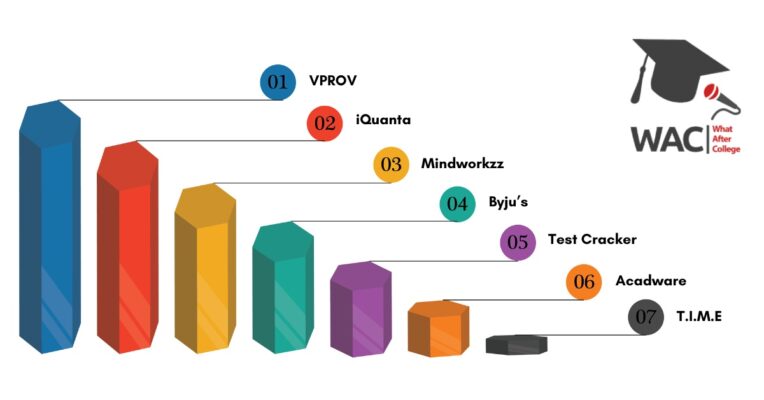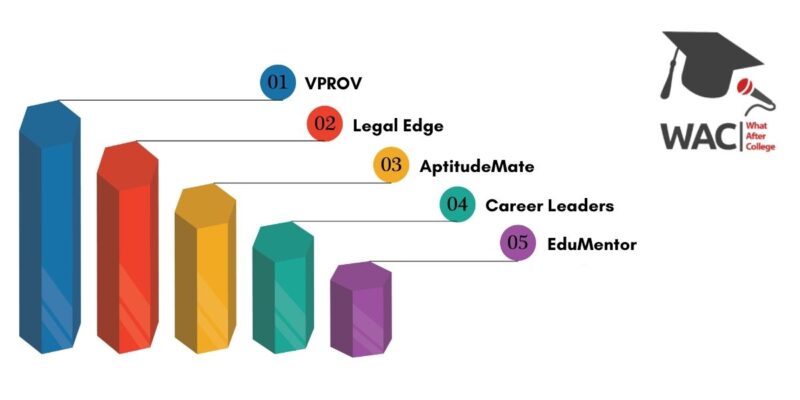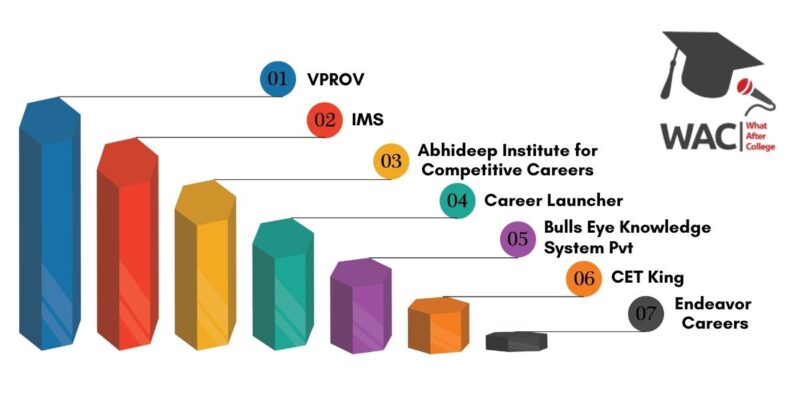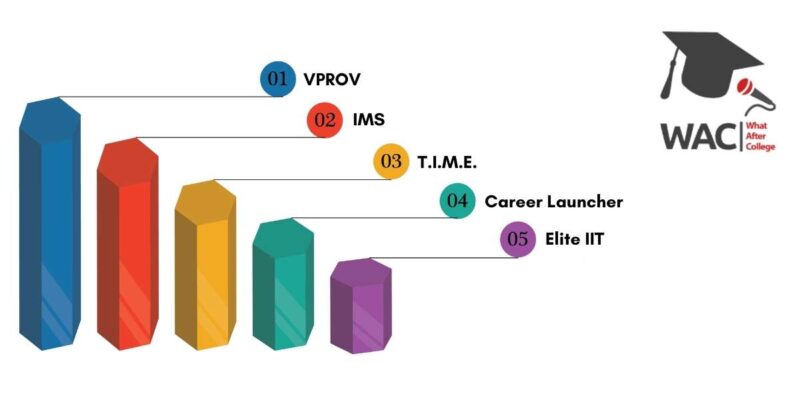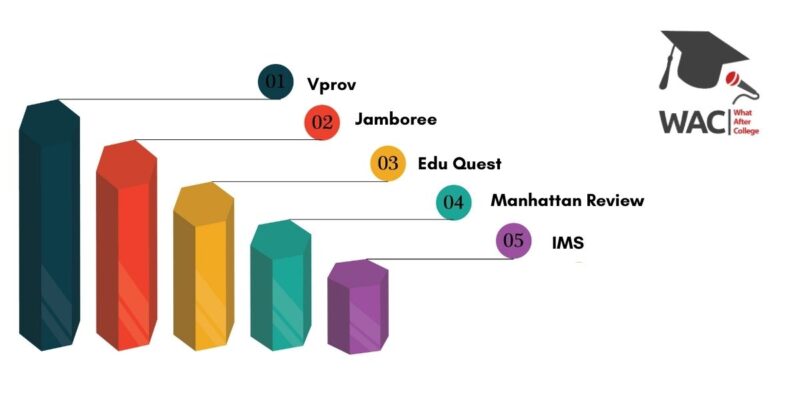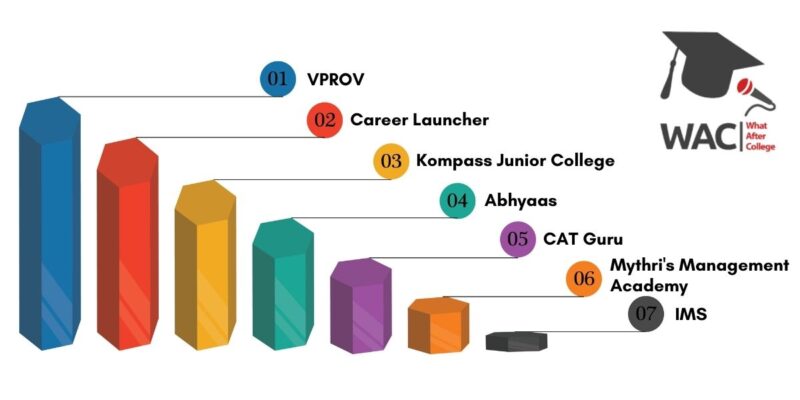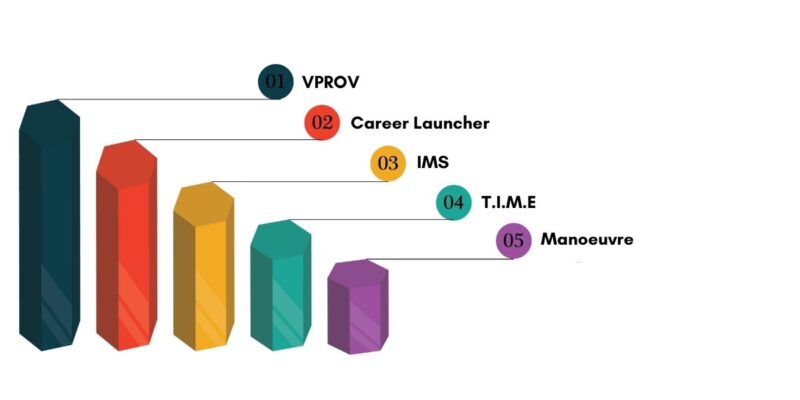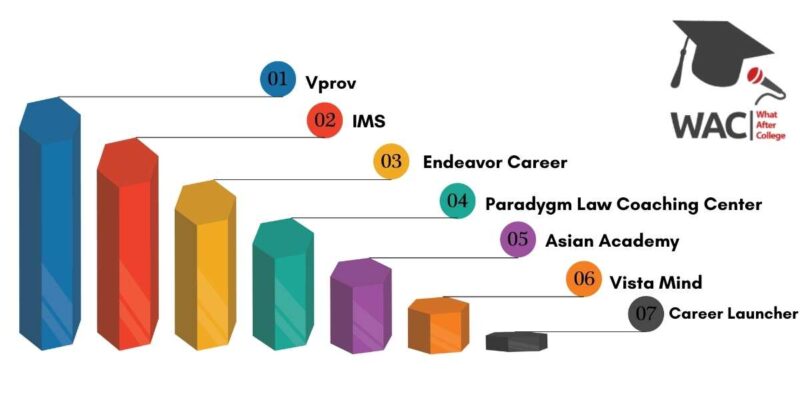UPSC IAS Preparation tips
How to prepare for UPSC IAS exam?
The most common things IAS Aspirants ask for “What are the IAS Preparation Tips?” To answer this, we are here with a bunch of IAS Preparation Tips to crack UPSC IAS Exam.
One in five young people in the united states aspires to turn into an IAS officer. There are countless factors adding to the enticement that the profession has. Right now, with the swift progress from the lucrative private field in the united kingdom, the civil companies remain accorded esteem and placement in our world that’s enviable. People research to IAS or IPS officials as change-makers so when a class of individuals who can steer the united states to development and development. And undoubtedly, the pay and perks of IAS officer may also be a bonus for the authority and electricity he/she enjoys. Because of these aspects, lakhs of individuals apply to produce the UPSC prelims tests every year. Nowadays, the data of the number of people who make it as civil servants, in the long run, is discouraging. Just a few hundred create the cut. If you are an aspiring civil servant, avoid being bogged down by these amounts. When you have decided firmly on your own dream, stop wanting to know how to plan the IAS test and actually acquire right down to it!
A large number of them are uncertain about the most proficient method to start and what to examine. They have various inquiries in their brain with respect to test qualification, test dates and so on Many don’t know whether instructing is an unquestionable requirement or not. However, the wrong direction can cost any applicant a great deal of time and misuse of cash. Many instructing foundations are uncertain how to appropriately direct understudies according to the most recent necessities of the Union Public Service Commission (UPSC), leaving the understudy with helpless training and bad quality examination materials. Our recommendation to understudies is to initially experience this site for clearness. It would be ideal if you look for any questions or points in our hunt box and you will get a lot of devoted pages on the data you are searching for. So as opposed to asking individuals around – how to read for a civil service test, it would be ideal if you allude to this site made distinctly for you. This tip is for all understudies independent of the truth whether they decide to go for instructing or choose to plan for the IAS test without training.
WHAT IS IAS?

You intend to get an IAS officer. But have you any idea what it really is? What’s the variation between IAS along with other providers like IPS, IFS, etc.? IAS means Indian Administrative services. The UPSC is really a constitutional body system that conducts the civil companies exams (CSE) aside from a bunch of other examinations to appoint officers to its many central providers for the federal government of India.
One can enter the IAS after clearing the civil products and services exams conducted from the UPSC. To find yourself in the IAS, you will need to fall inside a specified rank. It really is ranked the best service, so it’s advised that you just aim high once you consider the civil companies exam if you wish to serve specifically within the IAS.
The Indian Administrative Service is the head administrative civil service of the Government of India. Progression insightful, IAS is the most noteworthy administrative post among the 24 services like IPS, IFS, and so forth Prevalently known as the IAS test, formally it is called as Civil Services Examination (CSE), which is led each year by the focal selecting office, the Union Public Service Commission (UPSC). IAS is the lasting organization in India and structures a piece of the presidential branch. It is one of the three All India Services, its unit can be utilized by both the Union Government, the State Governments and public-area endeavors.
Indian Administrative Service (IAS) has been named as one of the esteemed services among the 24 taxpayer driven organizations like IPS, IFS (Foreign), IFS (Forest), IP and TAFS, IAAS, IRS, IDAS, CMSE, IRTS, IRAS, IRPS, ITS, CAPF-AF to give some examples. Every one of these examinations is directed by UPSC as Civil Services Examination (CSE) for choosing the fitting contender for the positions.
Consistently lakhs of up-and-comers show up for this examination, testing their fates and difficult work to get past one of these lofty posts. When on nomination outside India, the IAS official can be occupied with between legislative associations like the International Monetary Fund (IMF), World Bank (WB), the Asian Infrastructure Investment Bank (AIIB), the United Nations (UN), or its offices and the Asian Development Bank (ADB) to give some examples.
It is significant for applicants to know and comprehend the necessities of the examination, for example, the UPSC IAS prospectus, design, qualification models, application methodology, and other such critical subtleties before launching the enlistments.
IAS PREPARATION TIPS FOR EXAMS
One of the essential factors that make the Civil Service Exam intense is the test design. It comprises of three phases, Prelims, Mains, and Interview. Understudies need to cross each stage to move on to the following. The degree of trouble increments with each stage. The last stage can likewise be a difficult one to figure out on the grounds that the UPSC tests not just the competitor’s information and capacity to compose, yet in addition their psychological strength and capacity to manage circumstances. It requires an extraordinary sort of readiness to beat the UPSC talk on the stage. Another significant element that adds ‘strength’ to the test is the schedule, as it covers an assorted scope of subjects, in contrast to numerous other tests.
At the point when we take a gander at the achievement rate in the IAS test, one can comprehend why it is viewed as perhaps the hardest test in India. Consistently, lakhs of individuals take the IAS prelims test. Out of this, just about 25% arise triumphantly and move onto the ‘mains’. After the principle test around 15% makes it to the meeting stage. In the meeting stage, the achievement rate is about half. Along these lines, the finish rate in the UPSC test is under 1%. UPSC test can be called extreme, if the understudy follows a technique and plan with bearing, they can undoubtedly break the test. Here is the rundown of IAS Preparation tips which can assist the understudies with scaling the test.
IAS PREPARATION TIPS 1: GET THE IAS EXAM CALENDAR
The next matter to perform is to obtain the IAS examination schedule to enable you to assess the moment left for the IAS preparation. Essentially, you should reserve at least per year for USPC test preparation. Each year, the UPSC emits an exam calendar.
IAS PREPARATION TIPS 2: KNOW THE UPSC CIVIL SERVICES EXAM PATTERN
IAS Preparation requires a vital methodology for IAS prelims and fundamental tests. IAS prelims test is advancing towards a more logical direction and the candidates need to comprehend the interest of the test. IAS schedule and earlier year question papers of IAS are the main two authentic sources which can control the candidates in a superior manner. IAS Preparation Tips vigorously relies upon the books, study material, and these days the online investigation material. The best books give the right data which frames the premise of investigation. IAS groundwork for prelims requires more acts of false tests and update after each test. Recent developments of public and worldwide significance are significant for IAS readiness.
IAS Preparation tips are the readiness of the points given in the IAS Syllabus. IAS planning is perhaps the hardest thing on the grounds that the candidates need to set up the interrelation of one perspective with the wide range of various parts of the theme. The recent development of public and worldwide significance shapes the IAS readiness in light of the fact that the candidates need to see the occasion from the crystal of the subjects given in the IAS schedule. For any occasion, the candidates need to set up their verifiable, geological, financial, and political essentialness. The candidates additionally need to evaluate its effect on the climate and the future outcomes of the occasion on society and humankind in general.
The civil services exam is held in three stages.
- USPC Prelims Exam
- UPSC Main Exam
- UPSC Board Interview/ Personality Test
You have to clear each stage to be eligible for the next.
Stage I: USPC Prelims
The Preliminary is the main stage otherwise called the screening round in the determination cycle. The vast majority of the Civil Service competitors accept that clearing the screening round is extreme on account of the gigantic rivalry. In the IAS Preliminary examination, which will be held in target type and includes two obligatory papers. Here are the IAS Preparation Tips for the Preliminary test.
UPSC sets a specific schedule for the Civil Services Main examination. An applicant can plan appropriately by following the IAS Preparation Tips identified with the test. An applicant can contemplate the significant points referenced in IAS Exam Syllabus and proceed with his/her planning toward the path.
![]() The Prelims phase of IAS comprises 2 necessary papers-General Ability Test (GAT) and the Civil Service Aptitude Test (CSAT). This will test the logical abilities of the candidates.
The Prelims phase of IAS comprises 2 necessary papers-General Ability Test (GAT) and the Civil Service Aptitude Test (CSAT). This will test the logical abilities of the candidates.
![]() All inquiries are objective in nature. Candidates are needed to pick any of the 4 answer decisions given for each question.
All inquiries are objective in nature. Candidates are needed to pick any of the 4 answer decisions given for each question.
![]() Questions are set in both English and Hindi Language. Notwithstanding, questions identifying with the English Language Comprehension aptitudes of the class tenth level is tried through a section from the English language just without giving Hindi interpretation thereof in the inquiry paper.
Questions are set in both English and Hindi Language. Notwithstanding, questions identifying with the English Language Comprehension aptitudes of the class tenth level is tried through a section from the English language just without giving Hindi interpretation thereof in the inquiry paper.
![]() IAS Prelims is a passing test. Candidates need to get at least 33 % to be equipped for the Mains.
IAS Prelims is a passing test. Candidates need to get at least 33 % to be equipped for the Mains.
![]() The number of candidates to be admitted to Mains is around twelve to multiple times the complete an inexact number of opportunities to be filled in the year through this examination
The number of candidates to be admitted to Mains is around twelve to multiple times the complete an inexact number of opportunities to be filled in the year through this examination
IAS Marking Scheme for Prelims
![]() Each question in the General Studies paper conveys 2 imprints.
Each question in the General Studies paper conveys 2 imprints.
![]() Each question in the Civil Service Aptitude Test paper conveys 2.5 imprints.
Each question in the Civil Service Aptitude Test paper conveys 2.5 imprints.
![]() For each question for which an off-base answer has been given by the candidate, 33% (0.33) of the imprints allocated to that question will be deducted as punishment.
For each question for which an off-base answer has been given by the candidate, 33% (0.33) of the imprints allocated to that question will be deducted as punishment.
![]() On the off chance that a candidate offers more than one response, it will be treated as an off-base answer regardless of whether one of the offered responses turns out to be right and the punishment will be equivalent to referenced above for that question.
On the off chance that a candidate offers more than one response, it will be treated as an off-base answer regardless of whether one of the offered responses turns out to be right and the punishment will be equivalent to referenced above for that question.
![]() On the off chance that an inquiry is left clear, for example no answer is given by the candidate, there will be no punishment for that question.
On the off chance that an inquiry is left clear, for example no answer is given by the candidate, there will be no punishment for that question.
![]() Paper-II (CSAT) in the IAS test is of qualifying nature and candidates should score at least 33 percent in this paper to meet all requirements for the following phase of the IAS test for example the Mains.
Paper-II (CSAT) in the IAS test is of qualifying nature and candidates should score at least 33 percent in this paper to meet all requirements for the following phase of the IAS test for example the Mains.
Negative Marking
There are two objective (Multiple Choice Questions) exams in the prelims stage:
- General Studies Paper I
- CSAT (GS Paper II)
The CSAT Paper are certainly qualifying in aspect and you need to score at the least 33% inside it. Only then simply will your GS paper I be examined. Therefore, the merit standing for eligibility to mains will undoubtedly be out from 200 (through the GS paper I prelims)
Stage II: USPC Main
![]() IAS Mains is likewise a disconnected test. Each paper will convey 250 imprints.
IAS Mains is likewise a disconnected test. Each paper will convey 250 imprints.
![]() Each paper is of 3 hours. 30 minutes are offered extra to dazzle understudies.
Each paper is of 3 hours. 30 minutes are offered extra to dazzle understudies.
![]() The test will contain 9 papers. A candidate will be tried based on their insight and comprehension of the subject
The test will contain 9 papers. A candidate will be tried based on their insight and comprehension of the subject
![]() Questions will be emotional in nature. They will be given in both Hindi and English language.
Questions will be emotional in nature. They will be given in both Hindi and English language.
![]() IAS Mains is further isolated into two kinds – Qualifying Exam and Merit Exam. It is mandatory to show up in both.
IAS Mains is further isolated into two kinds – Qualifying Exam and Merit Exam. It is mandatory to show up in both.
Merit Exams-
Candidates will have to score a minimum percentage in the qualifying exam to qualify for the exam. The question papers are prepared to test the intellectual and interpersonal skills of the candidate. The essay type questions will test the student’s understanding of the subject and the concept. The students will be tested on the strength of an Indian Language. There would be two optional papers that the candidates would have to select.
In the UPSC mains, there are 9 papers, all descriptive in nature.
1. Paper A: Modern Indian Language – 300 marks
2. Paper B: English – 300 marks
3. Paper I: Essay – 250 marks
This paper can be written in the candidate’s medium of exam or a language of his/her choice.
4. Paper II: General Studies I – 250 marks
Topics: Indian Heritage and Culture, History and Geography of the World and Society
5. Paper III: General Studies II – 250 marks
Topics: Governance, Polity, Social Justice and International Relations
6. Paper IV: General Studies III – 250 marks
Topics: Technology, Economic Development, Biodiversity, Environment, Security and Disaster Management
7. Paper V: General Studies IV – 250 marks
Topics: Ethics, Integrity and Aptitude
8. Paper VI: Optional Subject Paper I – 250 marks
Candidate is allowed to take up literature as an optional subject without the condition of having it at the graduation level.
9. Paper VII: Optional Subject Paper II – 250 marks
The English and Indian terms papers happen to be of qualifying mother nature and their markings aren’t counted for the full total tally within the mains ranking. Therefore, the mains full has gone out of 1750 marks.
Stage III: UPSC Board Interview/ Personality Test
Finally, in the event that you clear out the cutoff, you’ll be needed the UPSC job interview where you’d be interviewed by UPSC panel; and assessed on your own expertise and personality.
IAS interview is the last phase of UPSC civil services test and it is the most critical stage. The IAS interview will assume the choosing part in conclusive legitimacy list, candidates can score great imprints in IAS interview and secure IAS framework and on occasion it might blowback them. In this way, IAS interview makes or break in the entire civil services test. The 30 minutes of your time may change the candidates life.
The Personality Test or Interview is the third period of the UPSC Civil Service Examination. The Mains qualified candidates will be required their interview directed by the UPSC. The span of the character test isn’t fixed however it relies upon the interviewees.
A definitive point of the UPSC interview is to guarantee the candidate’s quality, capacity, and limit whether he/she is appropriate for the organization. The interview is directed by different sheets under UPSC in New Delhi and candidates need to confront these sheets exclusively.
![]() The IAS Interview conveys a weightage of 275 imprints.
The IAS Interview conveys a weightage of 275 imprints.
![]() Competitors who qualify for the IAS Mains examination have required the meeting round.
Competitors who qualify for the IAS Mains examination have required the meeting round.
![]() The Personality test round incorporates Assessment Test, Psychometric Test, and Personal Interview.
The Personality test round incorporates Assessment Test, Psychometric Test, and Personal Interview.
![]() It is utilized to pass judgment on the psychological type of a contender to check whether she/he is good for the situation in all viewpoints or not.
It is utilized to pass judgment on the psychological type of a contender to check whether she/he is good for the situation in all viewpoints or not.
![]() This test is done in a language that is favored by the up-and-comers.
This test is done in a language that is favored by the up-and-comers.
![]() The weightage of this round and IAS Mains round make it an amazing absolute of 2025 imprints.
The weightage of this round and IAS Mains round make it an amazing absolute of 2025 imprints.
![]() The last choice is done based on this fantastic aggregate.
The last choice is done based on this fantastic aggregate.
UPSC IAS Interview Process
In the event that you are an IAS wannabe showing up for the UPSC IAS interview unexpectedly, then you will be anxious to know the cycle of the IAS interview on the interview day. Here we are giving the cycle to you:
![]() Candidates need to arrive at the scene ahead of schedule, there will be some primer security checks prior to entering the UPSC building, where security checks your interview call letter and government ID verifications (convey legitimate ID evidence with you).
Candidates need to arrive at the scene ahead of schedule, there will be some primer security checks prior to entering the UPSC building, where security checks your interview call letter and government ID verifications (convey legitimate ID evidence with you).
![]() Candidates need to keep their packs and cell phones as coordinated by the UPSC building security. From that point onward, candidates are permitted to sit in the holding up the corridor to check their reports. The individual government authority will confirm your records (instructive endorsements, standing declarations, and other separate archives according to your DAF).
Candidates need to keep their packs and cell phones as coordinated by the UPSC building security. From that point onward, candidates are permitted to sit in the holding up the corridor to check their reports. The individual government authority will confirm your records (instructive endorsements, standing declarations, and other separate archives according to your DAF).
![]() When the records check is finished, the candidates will be the quantity of the board and arrangement number to show up before the board. State For instance, on the off chance that you took a chit of Panel number 5 and grouping number 2, implies you seem second in the succession before board number 5.
When the records check is finished, the candidates will be the quantity of the board and arrangement number to show up before the board. State For instance, on the off chance that you took a chit of Panel number 5 and grouping number 2, implies you seem second in the succession before board number 5.
![]() Candidates are sit in gatherings as per their particular board numbers. As indicated by your arrangement, the staff will take to the board space to show up before the UPSC interview board. Meanwhile, you can benefit from the movement repayment for outstation candidates.
Candidates are sit in gatherings as per their particular board numbers. As indicated by your arrangement, the staff will take to the board space to show up before the UPSC interview board. Meanwhile, you can benefit from the movement repayment for outstation candidates.
![]() On a normal, in one meeting UPSC board takes 5-6 competitors. Generally, each interview goes on for 25 to 30 minutes.
On a normal, in one meeting UPSC board takes 5-6 competitors. Generally, each interview goes on for 25 to 30 minutes.
![]() Showing up for the IAS interview is an extraordinary encounter. To make progress and get a great score in IAS interviews, candidates should be respectful, quiet, and certain.
Showing up for the IAS interview is an extraordinary encounter. To make progress and get a great score in IAS interviews, candidates should be respectful, quiet, and certain.
Medical Examination after IAS Interview
Every candidate needs to go through the clinical examination after the IAS character test. There will be a Central Standing Medical Board (CSMB) which will look at the psychological and actual status of the candidate dependent on which the service will be assigned. The UPSC has empaneled the beneath given clinics and the candidates(male or female) are shipped off these assigned medical clinics for the clinical examination. The rundown of the medical clinics is given underneath
- Safdarjung Hospital
- Dr. Ram Manohar Lohia Hospital
- Lok Nayak Jai Prakash Narayan Hospital
- Sucheta Kriplani Hospital
- Guru Teg Bahadur Hospital
- Deen Dayal Upadhyay Hospital
- B.R. Ambedkar Hospital
- AIIMS, New Delhi
The candidates are suggested for the date, time and scene for the clinical examination. In addition, the candidates need to adhere to the given guidelines for the clinical examinations. The IAS Preparation Tips for Medical Examination are given underneath:
- Candidate should come fasting for 10 hours or more upon the arrival of Medical Examination.
- Candidate should come without taking any medication upon the arrival of Medical Examination.
- Candidate ought to bring along the displays, assuming any, being utilized by him/her alongside the remedy for the equivalent.
- Candidate utilizing Contact Lenses should quit utilizing them at any rate 48 hours before the day of clinical examination.
- Candidate ought to bring along Hearing Aid, assuming any, being utilized by him/her and its most recent audiometry report.
- Candidate having a place with Persons with Benchmark Disability classification is encouraged to bring along the machines being utilized by him/her for his/her inability.
- Candidate ought to bring along a remedy for any sort of medication being taken by him/her consistently.
- Candidate ought to bring along records of any surgery he/she has gone through before.
- Candidate ought to bring along the Disability Certificate, assuming any, gave to him/her by any Disability Medical Board previously.
- Some other applicable record a candidate may jump at the chance to bring to the notification of the Central Standing Medical Board.
- The candidate will be needed to say something according to the organization gave at para-18 preceding his/her Medical Examination and must sign the Declaration added thereto.
- Candidate ought to submit to the Chairman of the Medical Board ten identification size photos with white foundation.
A candidate’s clinical examination report alongside the proposals is likewise to be distributed in the committed site page of the candidate which is open just to the candidate worried through his/her secret key on DoPT’s site inside 7 (seven) working days from the date of receipt of clinical reports from the emergency clinic to DoPT. On the off chance that, the candidate isn’t happy with the clinical reports, he can request against it online inside seven days. The DoPT will allot the candidates to the redrafting board framed for this reason as it were.
IAS PREPARATION TIPS 3: KNOW THE USPC IAS EXAM ELIGIBILITY, AGE AND EDUCATIONAL CRITERION
You have to be a graduate to be able to take the IAS exams. There are also a set number of attempts you can take.
IAS Eligibility – UPSC Age Limit
A candidate should be at least 21 years and most extreme 32 years of age as of August 01, 2020. However, he/she has probably been brought into the world not sooner than August 02, 1988, and not later than August 01, 1999. The fundamental move will make to roll out comparing improvements in particular Rules/Regulations relating to different services.
The upper age limit recommended above is relaxable for the accompanying candidates:
![]() 5 Years – Scheduled Caste/ Scheduled Tribe (SC/ST)
5 Years – Scheduled Caste/ Scheduled Tribe (SC/ST)
![]() 3 Years – Other Backward Classes (OBC)
3 Years – Other Backward Classes (OBC)
![]() 3 Years – Defense Services personnel
3 Years – Defense Services personnel
![]() 5 Years – ex-servicemen including Commissioned Officers and ECOs/SSCOs who have rendered at least 5 years Military Service as on August 01, 2020.
5 Years – ex-servicemen including Commissioned Officers and ECOs/SSCOs who have rendered at least 5 years Military Service as on August 01, 2020.
![]() 5 Years in the case of ECOs/SSCOs
5 Years in the case of ECOs/SSCOs
![]() 10 Years – Blind, deaf-mute, and orthopedically handicapped persons
10 Years – Blind, deaf-mute, and orthopedically handicapped persons
![]() 5 Years – In the case of ECOs/SSCOs who have completed an initial period of assignment of five years of Military Service as on 1st August, 2019 and whose assignment has been extended beyond five years and in whose case the Ministry of Defense issues a certificate that they can apply for civil employment and that they will be released on three months’ notice on selection from the date of receipt of offer of appointment
5 Years – In the case of ECOs/SSCOs who have completed an initial period of assignment of five years of Military Service as on 1st August, 2019 and whose assignment has been extended beyond five years and in whose case the Ministry of Defense issues a certificate that they can apply for civil employment and that they will be released on three months’ notice on selection from the date of receipt of offer of appointment
IAS Eligibility- Educational Qualification
The different scholarly prerequisites according to the IAS Eligibility Criteria are given underneath:
![]() Least capability for UPSC test: The candidate must hold a degree from Government perceived Universities or have an identical capability.
Least capability for UPSC test: The candidate must hold a degree from Government perceived Universities or have an identical capability.
![]() Candidates who are in their last year or anticipating results are additionally qualified to show up for UPSC fundamental Examination. All such candidates who are probably going to show up for IAS tests must create evidence of having breezed through the said examination alongside the application for the primary IAS examination.
Candidates who are in their last year or anticipating results are additionally qualified to show up for UPSC fundamental Examination. All such candidates who are probably going to show up for IAS tests must create evidence of having breezed through the said examination alongside the application for the primary IAS examination.
![]() Candidates having proficient and specialized capabilities perceived by the Government as comparable to expert and specialized degrees.
Candidates having proficient and specialized capabilities perceived by the Government as comparable to expert and specialized degrees.
![]() Clinical understudies who have spent the last year of MBBS, however, are yet to finish their temporary job additionally have qualifications for IAS. In spite of the fact that, alongside the Main Examination application, an endorsement obviously culmination (counting temporary position) from the concerned authority of the University/Institution must be submitted.
Clinical understudies who have spent the last year of MBBS, however, are yet to finish their temporary job additionally have qualifications for IAS. In spite of the fact that, alongside the Main Examination application, an endorsement obviously culmination (counting temporary position) from the concerned authority of the University/Institution must be submitted.
IAS Eligibility- Nationality
For IAS and IPS:
![]() Candidate must be a citizen of India
Candidate must be a citizen of India
All other Services:
![]() Candidate must be a citizen of India
Candidate must be a citizen of India
![]() Candidate must be a citizen of Nepal or a subject of Bhutan
Candidate must be a citizen of Nepal or a subject of Bhutan
![]() Candidate must be a Tibetan Refugee who came to India before January 1, 1962, to be settled permanently in India
Candidate must be a Tibetan Refugee who came to India before January 1, 1962, to be settled permanently in India
![]() Candidate must be person of Indian Origin who has migrated from Ethiopia, Kenya, Malawi, Myanmar, Pakistan, Sri Lanka, Tanzania, Uganda, Vietnam, Zaire, or Zambia with an intention of permanently settling in India
Candidate must be person of Indian Origin who has migrated from Ethiopia, Kenya, Malawi, Myanmar, Pakistan, Sri Lanka, Tanzania, Uganda, Vietnam, Zaire, or Zambia with an intention of permanently settling in India
Number of attempts:
![]() Limitation on the maximum number of endeavors is viable since 1984:
Limitation on the maximum number of endeavors is viable since 1984:
![]() For General Candidates: 6 endeavors (Up to 32 Years)
For General Candidates: 6 endeavors (Up to 32 Years)
![]() Planned Caste and Scheduled Tribe Candidates (SC/ST): No Limits (Up to 37 Years)
Planned Caste and Scheduled Tribe Candidates (SC/ST): No Limits (Up to 37 Years)
![]() Other Backward Classes (OBC): 9 endeavors (Up to 35 Years)
Other Backward Classes (OBC): 9 endeavors (Up to 35 Years)
![]() Actually incapacitated 9 endeavors for general and OBC, while limitless for SC/ST
Actually incapacitated 9 endeavors for general and OBC, while limitless for SC/ST
THE UPSC SYLLABUS
Before getting into your IAS tests, it is crucial that you just internalize the UPSC syllabus. Go through from the USPC IAS Exam syllabus and also the current matters portion must be from the UPSC syllabus.
IAS planning IAS Preparation Tips Goes connected at the hip with the current undertakings. At the point when the candidate comprehends the recent developments of public and worldwide significance, the person begins drawing an obvious conclusion and comprehend the backlinks of current issues with the overall examinations static subjects as referenced in the IAS Syllabus. The IAS Preparation Tips includes the interlinking of the themes referenced in the IAS prospectus with each other and with current issues. IAS arrangement requests the comprehension of the effect of one occasion on the other and the other way around.
There are different methods of UPSC Preparation Tips and the candidates should make his IAS arrangement plan and system dependent on his qualities and shortcomings. The IAS clinchers, tutors and instructors propose that each candidate need to plan the way of IAS arrangement dependent on his own latent capacity. IAS arrangement is a cycle and the candidates himself develop in this cycle and become a superior person.
How to Prepare for IAS Exam Effectively/ IAS Preparation Tips
IAS Exam is accepted to be the hardest government examination in India. Be that as it may, if a competitor is not kidding enough, grasps the correct methodologies, direction, and study material then even self-study is sufficient to overcome the IAS exam. Given underneath are some significant IAS Preparation Tips which an applicant can follow to score high in the exam:
![]() WORK HARD, BUT ALSO BE SMART ABOUT IT
WORK HARD, BUT ALSO BE SMART ABOUT IT
Working hard is a important if you want to crack the IAS exam. But it is recommended that you don’t just study mindlessly. The interview part of the civil services tests isn’t intended to pass judgment on one’s skill regarding a matter. Nonetheless, a candidate needs to talk from the heart or answer all the inquiries with genuineness.
There is a typical misconception among the candidates that in the event that they talk lies about their pastimes just to traverse the interview, it will never support them. The interviewers are there to pose inquiries as well as to assess a candidate’s character and capacity to have a reasonable arrangement that a ‘no’ is a ‘no’ it can’t be supplanted with a ‘yes’ and the other way around.
So you must act naturally and must face the test and interview sincerely.
![]() TEST YOURSELF REGULARLY
TEST YOURSELF REGULARLY
Throughout your UPSC IAS preparation, you need to regularly evaluate your preparation levels by taking exams. This will assist you to know your talents and weaknesses.
Probably the greatest barricade for the CSE is the time the executives. The test is directed more than three phases – the Preliminary, Main and the Interview. Each has a quite enormous prospectus and the test stretches out longer than a year. Most applicants are full-time understudies or office-goers who need to plan their arrangement inside the time they can oversee outside of their standard everyday practice.
Being not kidding about the test requires a consistent center, and in this way a different time-table to guarantee a reliable methodology towards absorbing the tremendous measure of data for the test. This time the board is just conceivable if the candidates can set up a timetable and fix cutoff times for when they plan to cover the different IAS preparation tips. For example, reading and making notes for at any rate a couple of hours consistently for 10 days to cover the essential ideas of Geography.
The cycle and the individual timetables may change yet working out the system for time the board is fundamental to everybody. Last moment packing has barely, or rather infrequently, worked for most CSE candidates. It is additionally imperative to understand that a ton of an opportunity to study will really include returning to ideas you have just considered. Thus, saved time for normal corrections and exercise your cerebrum routinely.
![]() PREPARE A SUITABLE TIMETABLE
PREPARE A SUITABLE TIMETABLE
Dissect your status sometime before the examination and plan your timetable in like manner. With regards to civil services tests, a minute ago arrangements never work. Since the civil services tests occur each year, there is consistently a lot of time to arrange for how long you would need to apportion for specific subjects.
Keep in mind, without rushing consistently dominates the race. So early arrangements consistently help than robbing up when the tests are only a month away. The volume of data, towards thorough planning, may appear to be threatening. Therefore, it is simpler to structure the investigation plan focusing on expanding on the fundamental ideas, typically from the suggested NCERT books.
It is a smart thought to discover numerous source materials, while not overpowering your timetable with an excessive number of books. Candidates frequently even allude to online material for data.
![]() UNDERSTANDING THE EXAM PATTERN
UNDERSTANDING THE EXAM PATTERN
The UPSC website clearly states the intention of their test. It is to find individuals who need not have a specialized in-depth understanding of the topics but rather a comprehensive awareness of the history, culture, geography, and other functional aspects of India and a bit of the world.
Questions may get specialized in the Optional Subject papers, but only as much as somewhat more than an undergraduate level, i.e. at an Honor’s level. In the case of Engineering, Medicine, and Law, an undergraduate understanding is sufficient.
 MAKE NOTES
MAKE NOTES
Making notes can be an essential section of your IAS preparation tips. This is vital as it can make revision easier.
As you go through the syllabus, make quick notes. This will help you in revision and a better understanding of concerned topics.
One very simple fact that every civil services aspirant should know is that if one is not mentally prepared and determined enough to understand a subject to the core, one cannot succeed even by attending coaching classes.
Those who believe that only coaching classes can help them with useful IAS Preparation tips can join. However, it is always better to study each and every subject in detail with proper understanding instead of preparing for the name’s sake.
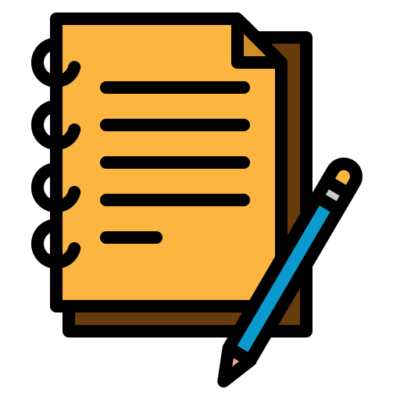 PRACTICE PREVIOUS YEAR UPSC QUESTION PAPERS
PRACTICE PREVIOUS YEAR UPSC QUESTION PAPERS
The significance of practicing previous year question paper cannot be pressured enough. In that cut-throat competition because the UPSC, it could provide you with the required advantage over your fellow aspirants.
Illuminating earlier years’ question papers is significant. It is encouraged to learn at any rate of 5 years of fathomed question papers. This sort of movement gives you a thought regarding the structure of the inquiries papers and what sort of inquiries can be posed in the coming tests. Fathoming question papers of earlier years or if nothing else looking at them may seem a monotonous undertaking, yet it is an agony worth going through. It helps your certainty and gives you an away from what precisely you will find in the inquiry papers of forthcoming tests.
Numerous civil services related locales have helpful inquiry banks available to you. So feel free to use them without limit and you will encounter the jump your character takes from being clear to being engaged and certain.
![]() CURRENT AFFAIRS
CURRENT AFFAIRS
The UPSC Current affairs is of utmost importance in the IAS Preparation tips for exam. Even the static portions are mostly asked based on latest happenings. So it is important to be abreast of current affairs. Follow What After College for daily news analysis for up-to-date and pruned current affairs study material.
Civil services tests are there to test an applicant’s top to bottom information about the general public he/she is lives in. It is a typical legend among the candidates that they should be very much aware of what’s going on at the global level.
Information about global occasions is likewise required, yet knowing one’s own town, region, state and nation should be considered as the establishment for one’s arrangement. This aids in serving one’s nation well overall.
A great deal of inquiries are related with the candidate’s overall consciousness of effective issues in the world, with accentuation on the happenings in India. Start perusing a huge number of every day papers to remain side by side of current points.
Various sources recommend The Hindu, Economist, The Indian Express, All India Radio News, Parliamentary discussions, regional language newspapers, and magazines like Yojana, India and Manorama Year Books.
![]() READING NEWSPAPER
READING NEWSPAPER
The moment one fills up the form for civil services exams, one is advised to read newspapers regularly. Reading English newspapers is advised with a lot of emphasis and its is the one of the major IAS preparation tips.
However, it is quite important for the civil services exams aspirants to read English as well as other regional language newspapers. The idea here is to be well informed rather than acquiring limited knowledge. One newspaper may provide a news with limited information whereas the same news may be given with a lot of details in another.
So be hungry for more than one newspaper to be well informed.
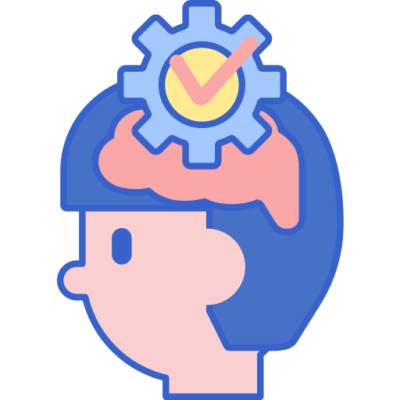 REVISE, REVISE, REVISE
REVISE, REVISE, REVISE
To withhold the lots of information you stuff into your mind daily, you need to revise. There is absolutely no replacement for it. The huge schedule of civil service examination can leave anyone in disarray. Consequently, you have to design your investigations for a day and for seven days.
You should design your investigation strategy so that you should have the option to peruse and amend the endorsed subjects however many occasions as could be allowed or work you feel sure about your readiness. The length and expansiveness of the CSE test require normal returns to the examination material. Your readiness timetable should cover the time expected to reconsider the read subjects on different occasions. It is frequently valuable to feature significant entries or make notes, for a brief glance near the test date. Ensure you have such an arrangement for proficiency.
![]() TIME MANAGEMENT
TIME MANAGEMENT
Civil Services tests are the longest serious test in the nation. Its genuine-time span reaches out to nearly 12 months. The groundwork for this test starts even a couple of years ahead of time. Accordingly, there are regular quires from the Civil Services hopefuls regarding how long one necessities to place in to qualify these tests. How long is required in the lean time dynamic season of the test and how to plan the timetable of study and so on?
Well, time on the board is significant in the Civil Services test. The most vital period of time the board is during the early planning of the test. Similarly, the time for the executives is significant during the period when you are really composing the test. At last time the board is likewise required when you are addressing the inquiry inside the distributed time.
The readiness stage requires perusing a great deal of study material and in this stage, you have to make an attainable objective like; so many numbers of pages must be perused to cover a certain bit of the prospectus and how long can be designated for doing that.
Additionally subsequent to perusing, you likewise need to fix a timetable for causing your own notes of the subjects you to have perused. This in the first place may look a bit troublesome, however, once you fix your cockerel for the particular work and on the off chance that you follow the time plan strictly, then things will become smooth steadily.
Attempt to make the examination arrangement for about a month. Audit after that strategy. The amount you have had the option to cover from the schedule inside the time span you have assigned for that specific reason. In the event that you have not had the option to accomplish your objective, make changes, and acclimations to your examination design and carry it to a more sensible and attainable objective.
IAS readiness isn’t one day or week or months work, it must be very much arranged and the whole schedule must be covered first even before you consider taking your prelim test. An ideal degree of planning is a must for both the Prelims and the Mains test before you genuinely fill the application structure to take the Prelim test.
Composing superb answers requires a ton of training. It involves courses of action of musings for substance and investigation with noteworthy opening, realities based center, and an obstinate end. This can’t be refined in only a couple of attempts of training of composing answers and to accomplish flawlessness a few endeavors are required.
You can continue with typical routine exercises during your beginning phase of IAS readiness. Notwithstanding, when you are composing Prelims, you must be completely engaged to qualify this piece of the test. With regards to the next stage, you need to thoroughly give yourself full an ideal opportunity for the arrangement of the Mains test. Since the Mains schedule is enormous, you have to scale up your planning time to at least 10 hours consistently.
The primary concern is to oversee time and spotlight on the time system that you designate for the planning of the civil service test. There could be many anguishing minutes during the readiness however never bargain on your time plan. The proverb, fortunes favors the fearless is the best depiction of who reasonably oversee time for the planning of the civil service tests.
 PRACTICE TESTING
PRACTICE TESTING
It is fundamental to keep up an ordinary propensity for composing, perusing, breaking down, and inspecting, a substance. Numerous effective candidates have focused on the significance of having ordinary conversations and discussions with their companions and partners, on points related to the schedule and current issues. It gives a superb practice to sensibly introducing your perspectives while additionally helping you to comprehend the profundity of your experiences.
There are many free fake tests accessible online to analyze your arrangement in a coordinated style. These can help in getting every one of your cogwheels in real life as needed upon the arrival of the test.
The UPSC site has a capacity bank for earlier year question papers. Despite the fact that the test organizers are known to never rehash inquiries from earlier years, the past inquiry papers do give a brief look at the sort of inquiries favored by them. You can pass judgment on the trouble level, importance to the recommended schedule, the profundity of the required arrangement, systematic and consistent intricacy, and scoring, by modifying your presentation on inquiries that have been posted previously.
 STAY FIT | BE STRESS-FREE | STAY POSITIVE
STAY FIT | BE STRESS-FREE | STAY POSITIVE
The IAS preparation is really a very long and taxing business, so it’s feasible that you eliminate your enthusiasm on the way. Additionally, it is possible that you are feeling stressed and feels of quitting midway. In order to avoid most of these situations, you need to take great health care of your actual and psychological well-being.
At long last, put aside an ideal opportunity to gaze upward from your books and interface with other individuals. The CSE tests are burdening on the candidate as well as the individuals around them. It is essential to not disregard your relational abilities and your overall enthusiastic prosperity. Eat and rest soundly, draw in yourself in other exercises, and don’t let the heaviness of the test worry you. The UPSC CSE test is planned so a candidate’s endeavors, commitment, planning, arranging, rationale, expository forces, and generally brisk reasoning, are remunerated. In that sense, each candidate’s beneficial encounters additionally assume a part in their arrangement.
The real CSE arrangement then just reduces to cleaning on the information that you would have in any case guzzled as an understudy and a resident of the nation. In this way, don’t harp on the tremendousness of the schedule yet rather focus on the most proficient method to become acquainted with your world somewhat better. You need to:
- Eat right
- Get adequate sleep
- Exercise
- Practice Yoga or meditation
- Avoid stress
- Take breaks in between your studies
- Be positive and try to look at the bright side of things
Why is Proper Answer Writing Important in IAS Mains?
Primary IAS Preparation tips for Writing Answer in UPSC Mains :
![]() Understanding: UPSC Mains questions can get truly dubious and now and then truly hard to comprehend. Before you begin writing any answer to any paper, perused the inquiry cautiously. Understanding the inquiries and the necessities referenced in the inquiry are the primary concern. You should have the option to have a reasonable hold over the issue.
Understanding: UPSC Mains questions can get truly dubious and now and then truly hard to comprehend. Before you begin writing any answer to any paper, perused the inquiry cautiously. Understanding the inquiries and the necessities referenced in the inquiry are the primary concern. You should have the option to have a reasonable hold over the issue.
![]() Mental system: Portraying the structure or drawing the answer in your brain is urgent. The exact second you peruse and comprehend the inquiry, set your brain about the strategy in which you going to answer. Along these lines, it will get significantly simpler to answer with the course of training. On the off chance that conceivable, record the focuses when you recollect it with a pencil so you can eradicate it.
Mental system: Portraying the structure or drawing the answer in your brain is urgent. The exact second you peruse and comprehend the inquiry, set your brain about the strategy in which you going to answer. Along these lines, it will get significantly simpler to answer with the course of training. On the off chance that conceivable, record the focuses when you recollect it with a pencil so you can eradicate it.
![]() Use time: Don’t manufacture answers to recall any answer. It will simply burn through your time in both the training period and test Hall. Rather attempt to recollect current realities and significant data identified with this point which will assist you with recalling the answer and furthermore it will spare you time more than expected.
Use time: Don’t manufacture answers to recall any answer. It will simply burn through your time in both the training period and test Hall. Rather attempt to recollect current realities and significant data identified with this point which will assist you with recalling the answer and furthermore it will spare you time more than expected.
![]() Wordcount: Another basic thing that is ordinarily to neglect to keep up, is the word check. In the event that any inquiry makes reference to as far as possible or word check, you should wrap up your answer around the breaking point. It shows your command over the intensity of language and the selection of words.
Wordcount: Another basic thing that is ordinarily to neglect to keep up, is the word check. In the event that any inquiry makes reference to as far as possible or word check, you should wrap up your answer around the breaking point. It shows your command over the intensity of language and the selection of words.
Intermediate IAS Preparation Tips for Writing answer in UPSC Mains
Introduction:
![]() The starting section of any answer is known as the Introduction. Candidates generally get confounded about what should be in the Introduction and wind up giving the fundamental data in the presentation.
The starting section of any answer is known as the Introduction. Candidates generally get confounded about what should be in the Introduction and wind up giving the fundamental data in the presentation.
![]() Ideally, the presentation should be educational just as present the theme or matter of the ideal answer to the inspector.
Ideally, the presentation should be educational just as present the theme or matter of the ideal answer to the inspector.
![]() To compose an ideal presentation, ensure it is containing 10 – 15 % expressions of the total answer.
To compose an ideal presentation, ensure it is containing 10 – 15 % expressions of the total answer.
![]() Like you are approached to compose any answer inside 150 words, you will devote 15 – 25 words in the Introduction making it conservative and clear.
Like you are approached to compose any answer inside 150 words, you will devote 15 – 25 words in the Introduction making it conservative and clear.
Principle Body:
![]() There are not many things that should be a top priority while writing the body of any answer of UPSC Mains:
There are not many things that should be a top priority while writing the body of any answer of UPSC Mains:
![]() Start your passage with the main focuses and attempt to keep up the order of the significance of each point.
Start your passage with the main focuses and attempt to keep up the order of the significance of each point.
![]() On the off chance that any answer requires both positive and negative investigation, partitioned into 2 sections and clarify the inspiration first and afterward the negative impacts.
On the off chance that any answer requires both positive and negative investigation, partitioned into 2 sections and clarify the inspiration first and afterward the negative impacts.
![]() In the event that there are fewer focuses to be examined one generally can consolidate these two sections of positive and negative impacts.
In the event that there are fewer focuses to be examined one generally can consolidate these two sections of positive and negative impacts.
![]() Make the body passages more genuine and restrained comprising of announcements and pointing’s which are to be underscored.
Make the body passages more genuine and restrained comprising of announcements and pointing’s which are to be underscored.
![]() UPSC Main inquiries are as a rule of two sorts: truth-based and feeling-based.
UPSC Main inquiries are as a rule of two sorts: truth-based and feeling-based.
![]() For the instance of actuality based, give accentuation on realities and reality. This will make you and look a ton reduced.
For the instance of actuality based, give accentuation on realities and reality. This will make you and look a ton reduced.
![]() On the off chance that there is a sentiment-based inquiry, don’t overlook the facts. Present the realities that help the feeling you are forcing in the answer.
On the off chance that there is a sentiment-based inquiry, don’t overlook the facts. Present the realities that help the feeling you are forcing in the answer.
End:
![]() The determination consistently should be a decent result of the entire answer leaving a beneficial outcome on the analyst.
The determination consistently should be a decent result of the entire answer leaving a beneficial outcome on the analyst.
![]() Do whatever it takes not to end your answer forcing another inquiry, it will corrupt your quality by making it confounding to comprehend.
Do whatever it takes not to end your answer forcing another inquiry, it will corrupt your quality by making it confounding to comprehend.
![]() To close your answer, start with a straightforward sentence that unites all the principle components/focuses/contentions of the answer.
To close your answer, start with a straightforward sentence that unites all the principle components/focuses/contentions of the answer.
![]() Like the presentation end likewise should be 10 – 15 % of the entire answer containing 25 – 30 words out of 200 words.
Like the presentation end likewise should be 10 – 15 % of the entire answer containing 25 – 30 words out of 200 words.
Advanced IAS Preparation Tips for Writing answer in UPSC Mains
Paper-wise Word limit:
![]() In the Essay paper, you need to compose two articles in the 1000-1200 word cutoff to keep up an arrangement of conceptualizing, sketching out, thought/contention situation, and organizing.
In the Essay paper, you need to compose two articles in the 1000-1200 word cutoff to keep up an arrangement of conceptualizing, sketching out, thought/contention situation, and organizing.
![]() The General Studies (GS) papers, except for GS paper IV which is the Ethics paper, have a constraint of 200 words for each question. On account of GS paper IV (Ethics), word limits are 150, 250, or 300, and 99% of the time the inquiries are feeling based. Here are two stunts: stay away from compound sentences and remember the single word replacements just as write in basic little sentences.
The General Studies (GS) papers, except for GS paper IV which is the Ethics paper, have a constraint of 200 words for each question. On account of GS paper IV (Ethics), word limits are 150, 250, or 300, and 99% of the time the inquiries are feeling based. Here are two stunts: stay away from compound sentences and remember the single word replacements just as write in basic little sentences.
![]() Most Optional subject papers convey 150 words for each question limit for the short-note area (the discretionary History is an outstanding special case). Here on the off chance that you have to pack a 400 – 500 words answer into 150 words, first make a substance of the focuses and express the root data of it.
Most Optional subject papers convey 150 words for each question limit for the short-note area (the discretionary History is an outstanding special case). Here on the off chance that you have to pack a 400 – 500 words answer into 150 words, first make a substance of the focuses and express the root data of it.
Orders of Questions and Styles of Answering inquiries:
![]() Comment: Question requesting your comment, or such a comment or your assessments, implies really your situation on the subject/issue. In the first place, present the subject, then furnish contentions with realities/models for your assessment, and close it with a basic comment on the two sides.
Comment: Question requesting your comment, or such a comment or your assessments, implies really your situation on the subject/issue. In the first place, present the subject, then furnish contentions with realities/models for your assessment, and close it with a basic comment on the two sides.
![]() Examine: If any inquiry is straightforwardly posing to examine, give an examination, or investigate, it essentially intends to test further into the offered theme and Support your response with subtleties like causes, suggestions, and the path forward. Attempt in the first place a concise discussion of the different issues on the theme and give subtleties and deduce in a similar section if conceivable.
Examine: If any inquiry is straightforwardly posing to examine, give an examination, or investigate, it essentially intends to test further into the offered theme and Support your response with subtleties like causes, suggestions, and the path forward. Attempt in the first place a concise discussion of the different issues on the theme and give subtleties and deduce in a similar section if conceivable.
![]() Critically examine: Questions beginning with or requesting basic examination, critically examine, or critically assess or basic discussion, you basically need to go into subtleties alongside causes and reasons, qualities and shortcomings, and notice the results, suggestions, and activity taken for the current issue. In such cases, strengthen your answer give the positive and negative impacts in various manners and various passages. you can include outcomes and impacts and so on and however the decision should be somewhat characteristic taking no sides if conceivable.
Critically examine: Questions beginning with or requesting basic examination, critically examine, or critically assess or basic discussion, you basically need to go into subtleties alongside causes and reasons, qualities and shortcomings, and notice the results, suggestions, and activity taken for the current issue. In such cases, strengthen your answer give the positive and negative impacts in various manners and various passages. you can include outcomes and impacts and so on and however the decision should be somewhat characteristic taking no sides if conceivable.
![]() Discuss: if the inquiries are posing to discuss, discuss extravagantly, critically discuss, clarify, explain, the answer needs to contain extensively, referencing qualities/shortcomings and positives/negatives, notice causes/outcomes, notice the value or handiness of the assertion, and draw out the worth.
Discuss: if the inquiries are posing to discuss, discuss extravagantly, critically discuss, clarify, explain, the answer needs to contain extensively, referencing qualities/shortcomings and positives/negatives, notice causes/outcomes, notice the value or handiness of the assertion, and draw out the worth.
IAS Preparation Tips To Crack IAS Prelims In One Month | IAS Preparation Tips
Each aspirant realizes that planning for the IAS Preliminary is a difficult errand and requires a great deal of difficult work other than time. At the point when the test date is drawing closer, numerous aspirants end their fantasies because of inadequate time. On the off chance that aspirants get some ias preparation tips about how to split IAS Preliminary in one month, the greater part of the fruitful competitors in the Civil Services state yes! One can split the test by drafting an ideal report calendar and acing weightage points.
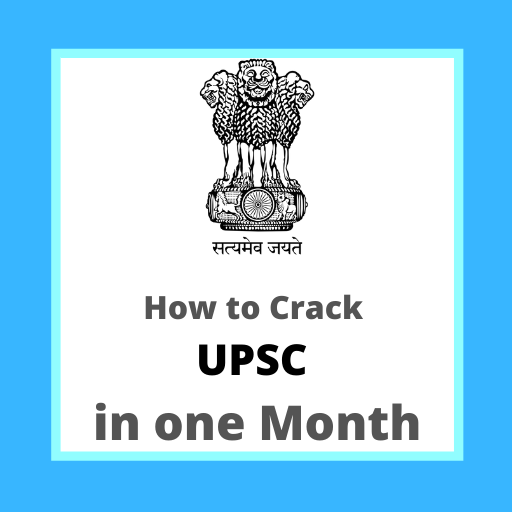
What to prepare for the IAS Exam?
The IAS questions consistently request the foundation from the occasion and some of the time about the cycle. The candidate ought to comprehend that they need to set up the subject completely covering its previous present and its future ramifications. In other words, we can say, the candidate ought to set up the why, how, when, which, when and what of the point.
“What to get ready for IAS test” is the issue which relies upon the current undertakings. At the point when we see the prospectus of IAS prelims test, Current Affairs is the principal theme referenced in the schedule. Recent developments of public and worldwide significance have a huge shadow on the IAS readiness. Current Affairs sets the locus of the IAS readiness. The inquiries posed in the IAS question paper have the course of current illicit relationships straightforwardly or by implication.
All the papers in the IAS primary test have a lion’s share of inquiries from current issues. Aside from General Studies Paper I, all other papers have an immediate or roundabout connection with the current issues. The candidates should see and attempt to tackle the IAS question papers of earlier years and attempt to discover their feeble territories so they can allot more opportunity to powerless zones and adequate chance to other regions.
The candidates ought to evaluate their qualities and shortcomings and make an arrangement likewise. The candidate ought to likewise adjust the customary themes and the current happenings identified with that point. The Candidates should design so that they arranged the fundamentals of the subject first and afterward go for the outside linkage of the theme with the recent developments and its effect on society.
How to Prepare Notes For UPSC | UPSC IAS PREPARATION TIPS
Much of the time posed inquiry by the Civil Services hopefuls regarding making notes are; the reason it is important to make notes? How to make notes from such voluminous examination material? When one should begin making notes?
Making notes is fundamental for the readiness of the Civil Services examination and there are a few motivations to it; one, notes makes you comprehend the given theme plainly. This is on the grounds that you need to get significant focuses and consolidate them in a couple of words or sentences while making notes. Second, recording any data causes you to recall it much better. Thirdly, making notes is a decent practice for considering the given subject. Fourth, all around made notes help you to try not to return to voluminous examination material. In conclusion, notes help you to remember the main purposes of every theme and encourages you in your last update.
The following inquiry is how to make notes from voluminous investigation material? There are various strategies for making notes and one ought to choose which technique suits you the best. There are two sorts of making notes; one is the ‘Direct Notes’ the other is ‘Example Notes’.
![]() Direct Notes: Linear notes technique is in which you gather the material you have perused and written down the main focuses utilizing headings and subheadings. This is the best technique to make notes subsequent to perusing a book paper or a magazine. Here one needs to try not to duplicate a ton of material and part of care must be taken while gathering the substance. The correct route is to utilize free pieces of paper to make notes on a given point as it is simpler to continue adding data through extra sheets. One can make the notes look all the more intriguing by utilizing colors, block letters, boxes, and highlighters. This will promptly cause you to notice the genuine substance and they would make it a lot simpler for a speedy review of the significant purposes of a point.
Direct Notes: Linear notes technique is in which you gather the material you have perused and written down the main focuses utilizing headings and subheadings. This is the best technique to make notes subsequent to perusing a book paper or a magazine. Here one needs to try not to duplicate a ton of material and part of care must be taken while gathering the substance. The correct route is to utilize free pieces of paper to make notes on a given point as it is simpler to continue adding data through extra sheets. One can make the notes look all the more intriguing by utilizing colors, block letters, boxes, and highlighters. This will promptly cause you to notice the genuine substance and they would make it a lot simpler for a speedy review of the significant purposes of a point.
![]() Example Notes: In this technique, you need to start the point at the focal point of the page and each line transmitting from it ought to speak to a part of the fundamental thought. Each point is composed as quickly as conceivable utilizing a catchphrase or an expression. This is a superior technique to receive on the grounds that it is more adaptable and one can add additional data at any time of time.
Example Notes: In this technique, you need to start the point at the focal point of the page and each line transmitting from it ought to speak to a part of the fundamental thought. Each point is composed as quickly as conceivable utilizing a catchphrase or an expression. This is a superior technique to receive on the grounds that it is more adaptable and one can add additional data at any time of time.
Second, we can see the whole example at one abandon really turning the pages. Thirdly, we can demonstrate the connections between various subjects all the more without any problem. Fourth, it is helpful from one’s memory perspective as one can hold writing down the focuses as and when they crop in the brain. Ultimately, since it is in a shape design it is a lot simpler to recall the substance of the notes. This patter assistance in correction is a lot quicker as just short watchwords are being utilized to make notes.
The disservice of example notes making is if there are an excessive number of realities and a lot of data, your notes get muddled and packed. Utilizing catchphrases can help to remember fundamental thoughts however with regards to recalling subtleties, this strategy can’t be adequate alone. So the best technique for making great notes is to utilize a blend of both Linear and Pattern strategies and develop your own one of a kind example of making noticed that may help you in your very late corrections.
Notwithstanding, whichever strategy you may decide to make notes it fundamental to have them made into four essential stages, one laying out the subject, second writing its central issues, third, its preferences and detriments lastly the end. One significant thing to recall is that for some subjects your notes should incorporate charts, table or a diagram and sketch maps and so on and you should have the exact and named unmistakably.
Whatever technique one may follow, one thing needs to recollect that the notes must be kept helpful consistently and must be kept in an appropriate document. It is a smart thought to utilize shaded banners to separate various subjects. With such orderly planning of making the notes the test of modification can be confronted with a lot more noteworthy certainty. Presently the last inquiry when would it be a good idea for one to begin making notes? One should begin making notes directly from the earliest starting point of the arrangement and could be much prior to taking an endeavor to compose the Prelims test.
The most ideal approach to make notes is to get a subject and get hold of various understanding material and assets for it, and whenever you have got done with perusing them all, you should begin making its notes since its substance is new in your brain. This will assist with composing the significant piece of the theme in your notes and perusing and composing techniques will help in its maintenance of the point. One significant thing to recall is to never regard a bunch of notes as the last form. You would first be able to begin making brief notes on a given subject, and afterward, continue adding data to it occasionally. Later on, you can grow and coordinate your notes substantially more appropriately. This as such is a greatly improved approach to make notes since when you are refreshing the data, your modification will happen at the same time while experiencing your notes.
Strategy for IAS Mains Exam | IAS PREPARATION TIPS
All around detailed technique alongside ideal time the board is the best way to get ready for the Mains test. So it’s essential to define your own procedure as it pays to act naturally. In any case, for the overall direction to handle this examination, we are giving a few hints which might be assistance to the competitor to make progress.
UPSC Question Papers for IAS exam | UPSC IAS PREPARATION TIPS
Importance of solving previous year UPSC question papers
Practice makes a man Perfect; the facts confirm that an understudy with legitimate practice can dominate in any sort of test. Rehearsing earlier year question papers is significant for planning, as these papers are the most solid and reliable wellspring of data for understudies composing the two prelims and fundamental examination. An understudy ought to never disregard the significance of earlier year question papers and test papers.
How old IAS question papers help students?
Explaining question papers offer the understudies a detailed comprehension about their aptitudes, such as self-assessment about their speed and time the executives. Understudies comprehend and become familiar with the lesser things which may be the chances in a civil service examination. By explaining these papers, understudies additionally understand the commonality in example papers. In this way, understudies can truly comprehend what not to overlook and which to choose.
Besides, illuminating these papers additionally causes them in update. It is consistently prudent to unravel these papers when understudies have totally finished with their arrangements. Eventually, understudies can assess their own exhibition and work on their weaknesses. They can see that a considerable lot of the inquiries are reshaped or reworded in the tests. Understudies must peruse the inquiries cautiously in the test and can perceive how supportive it has been.
It is in every case better for the understudies to self-assess their exhibition and measure their comprehension of the ideas. In this way, understudies must feel free to explain test papers and Civil Service Examination – the two prelims and primary earlier year question papers on the off chance that they truly want to prevail in the civil service test.
Online tests based on the UPSC question paper
Civil Service India presents to you the online tests at a negligible expense for rehearsing for the Prelims test. We have model inquiry papers in the online test for your training. These incorporate illuminated inquiry of the earlier years just as the current ones. Our online test can be gotten to after enrollment and making on the web installment. The target of the online test is to cause you to qualify for the Prelims test which should be possible just through training and more practice. So on the off chance that you like to prevail in the IAS test you should enlist and pay for the online test offered by Civil Service India.
Important Topics for IAS Exam | IAS PREPARATION TIPS
The candidates ought to set up all the subjects referenced in the IAS schedule since all the themes referenced there are significant. The candidates can isolate the IAS preparation tips into two sorts of themes.
1. Fundamental Topics
2. Current Topics having linkage with the fundamental topics
The fundamental subjects are the essential ideas which will never show signs of change ever again and some of them are time-autonomous. A portion of the instances of the fundamental points are the ideas of Science, the Astronomy, Geography, Constitution of India (up somewhat), fundamentals of Indian Economy and so forth. This rundown isn’t finished and there are different other subjects which can be remembered for it.
The candidates ought to set up the fundamental points first and afterward attempt to relate the themes with the current occurring the world over.
- Contraction of GDP in India and its significance
- Economic slowdown and its revival
- Poverty in India and GDP contraction
- Impact of contraction of GDP on Industries
- Monsoon and Agriculture
- Indian Economy and Economic Development of India
- Fundamental Rights and Duties
- India’s Freedom Struggle
- Ancient History of India
- Basic tenets of India’s Foreign Policy
- Women Empowerment
- Child labour issues
- Poverty in India
- Unemployment in India
- Social Issues in Indian Society
- Governance in India
- Consumer rights
These are a portion of the subjects which are consistently significant for the IAS planning and the Government activity to handle the issues identified with these themes are significant for the IAS arrangement.
Queries Related IAS Exam
The candidates should begin setting up the essentials with the NCERT Books and Daily Newspaper. Complete the NCERT of History, Geography, Economics and Sociology first and afterward begin perusing the committed books for each subject enhanced with the Newspaper.
There are 9 question papers in the IAS Main Exam. Out of these 9 question papers, the candidates need to qualify in the General English and General Hindi papers and their numbers are not counted for the final merit.
A general category/EWS category candidate has 6 attempts in the UPSC IAS exam. OBC candidates have 9 attempts; SC/ST candidates have no bar on the number of attempts (they can take the exam until they reach the upper age limit). EWS category with benchmark disability have 9 attempts, general and OBC physically disabled candidates have 9 attempts. SC/ST physically disabled candidates have no bar on the number of attempts.
The fundamental passage level compensation of an IAS official is Rs. 56,100. Officials are given other advantages too like living arrangements, official vehicles, and so on
The most noteworthy position an IAS official can seek is the Cabinet Secretary of the country.
The Government had proposed lateral entry into the civil services in 2018. In July 2018, somewhat more than 6000 candidates had applied. However, the Government needed nitty gritty data on the candidates, thus, another ad was given. Yet, nothing has overcome much with respect to lateral entry.
The only IAS Preparation tips for beginners is Carelessness is to be supplanted with estimated certainty, and dread is to be overwhelmed with training, practice, and some more practice.
Here are some IAS Preparation tips which can be followed by Working Professionals to crack IAS exam
A UPSC aspirant who is also a working professional would have a lot to do both professionally and academically. He would have no time to feel dull, lazy, pathetic, and unpleasant and other bad vibes which a full-time UPSC aspirant has to go through.
S/he would always be in work mode, filled with confidence and always stay motivated. This way s/he can counter the most powerful factor which leads to several failures in UPSC examination.
Here are some IAS Preparation tips which can be followed by Working Professionals to crack IAS exam
A UPSC aspirant who is also a working professional would have a lot to do both professionally and academically. He would have no time to feel dull, lazy, pathetic, and unpleasant and other bad vibes which a full-time UPSC aspirant has to go through.
S/he would always be in work mode, filled with confidence and always stay motivated. This way s/he can counter the most powerful factor which leads to several failures in UPSC examination.

